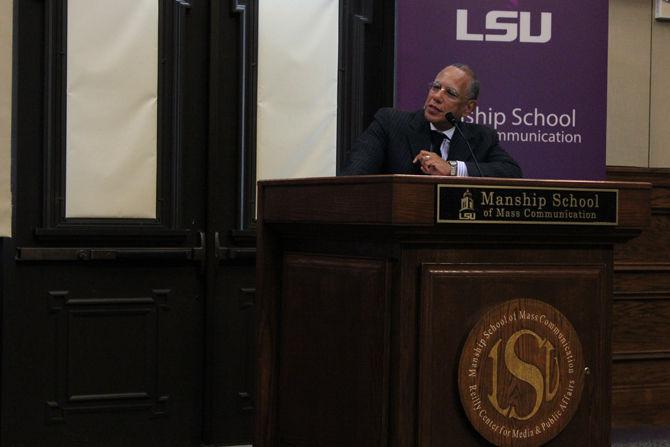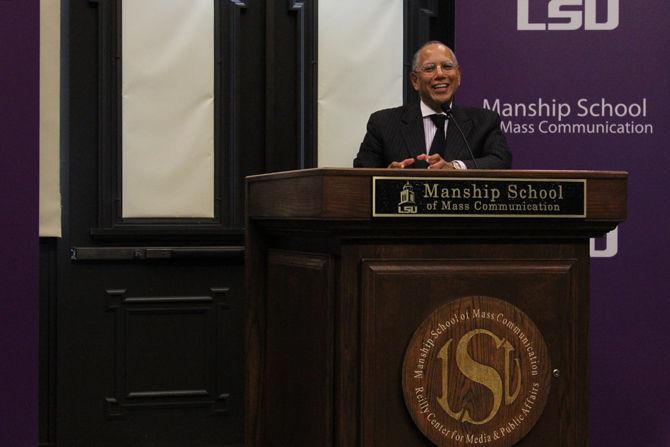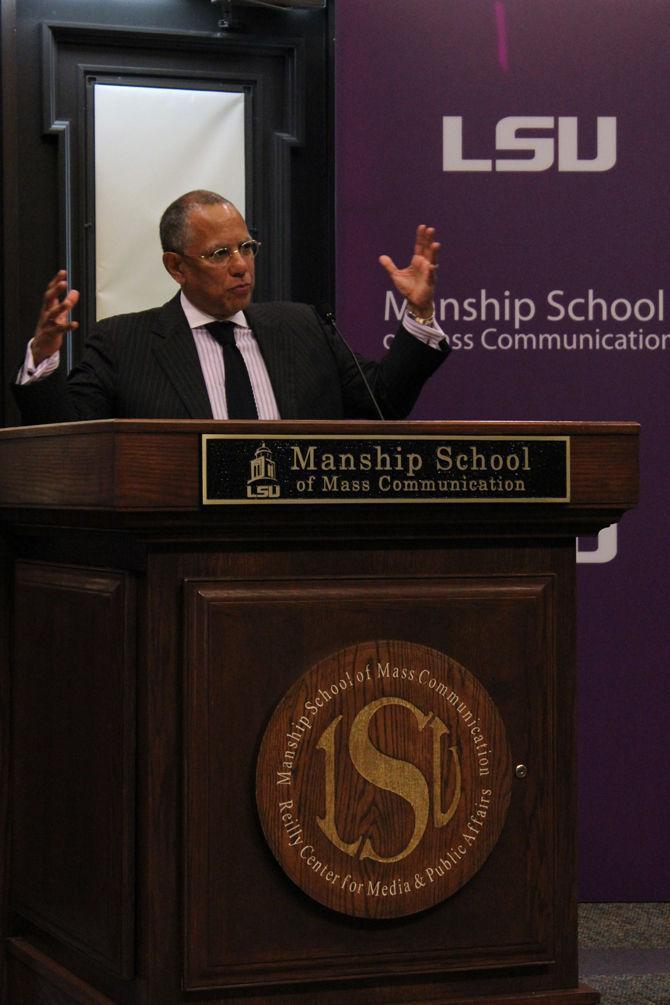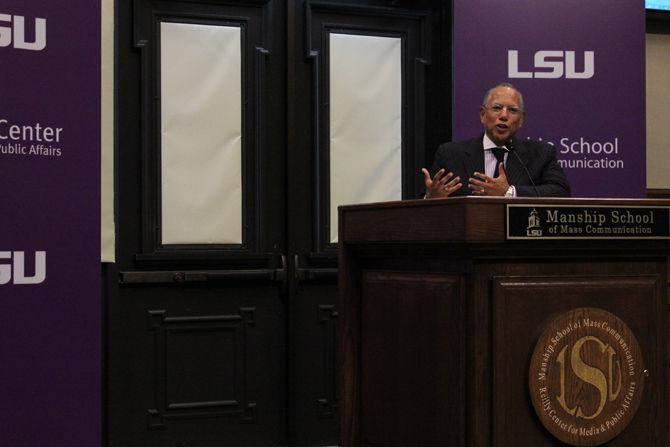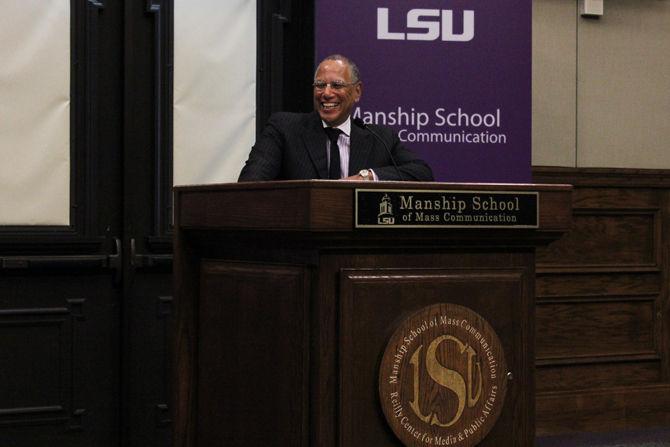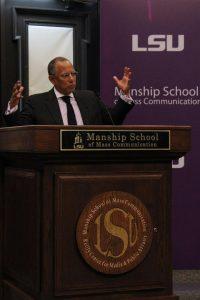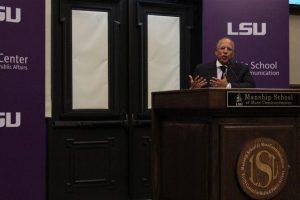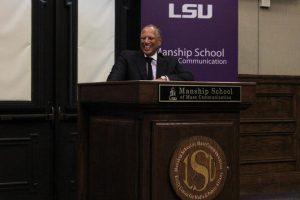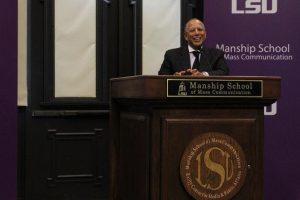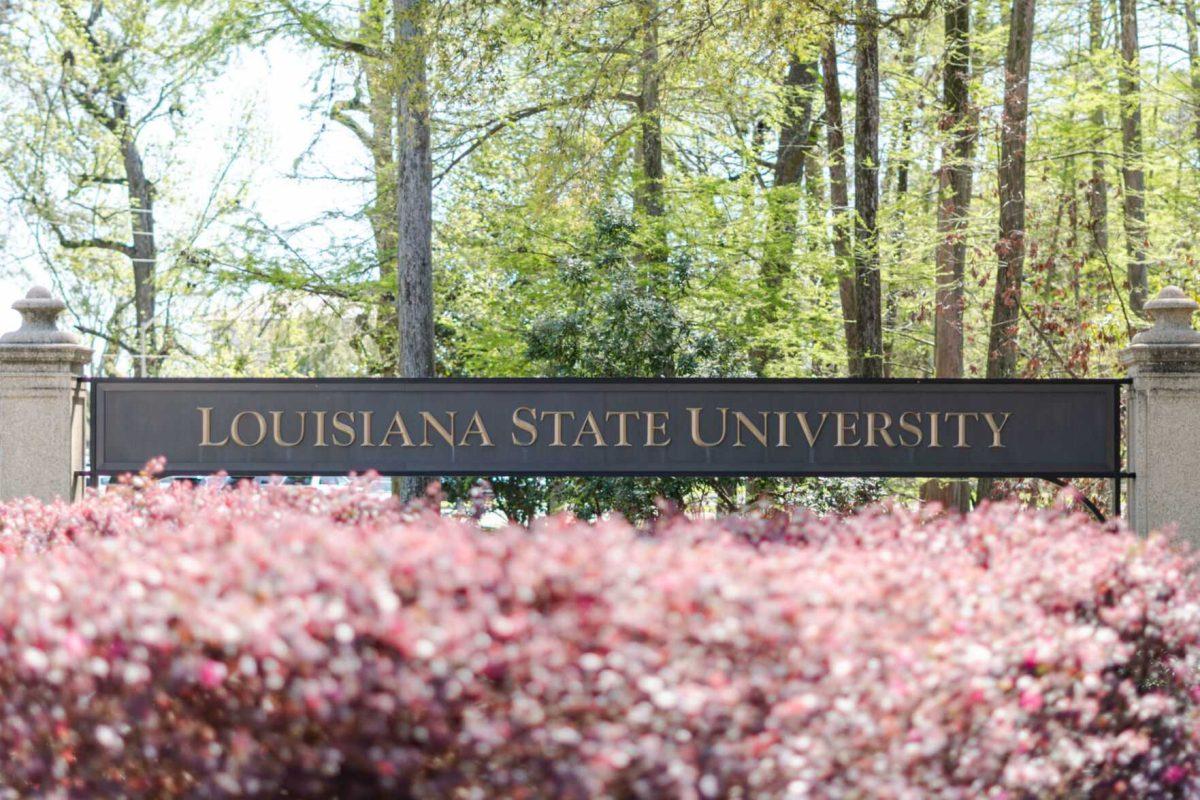Dean Baquet, executive editor for The New York Times, returned to his Louisiana roots Monday to speak to LSU students in the Journalism Building’s Holliday Forum.
In addition to serving as the first African-American executive editor for the Times, Baquet won a Pulitzer Prize after leading a team of Chicago Tribune reporters who exposed corruption within the Chicago City Council.
A New Orleans native, Baquet related his experience spearheading one of the largest international news organizations from its New York City headquarters to the crowd of college students.
Baquet said he learned three key lessons from his work as what Manship School of Mass Communication Dean Jerry Ceppos called “arguably the most important position in American journalism”: Journalists have to lead, multimedia is the future and reporters should try to understand their readers.
Mass communication sophomore Meagan Morvant said she found Baquet’s speech inspirational, especially because he was providing insight to the next generation of journalists.
“I hope everybody takes away that they need to be daring and bold, not afraid to push the limits,” Morvant said.
Though print journalism elicits nostalgia, Baquet said it is just another platform.
“Don’t let anyone tell you that journalism is dead,” Baquet said. “Now, it is better than ever.”
Baquet compared two scenarios 20 years apart: NYT coverage of the Oklahoma City bombing in 1995 and its coverage of the Paris terrorist attacks three weeks ago.
Though he deemed the bombing “1990s print newspaper at its greatest,” Baquet said, in retrospect, its coverage was “clumsy, even primitive.” He said he used telephone books to scramble for sources, and daily coverage ended at 9 p.m. when deadline hit.
Fast forward to Nov. 13, Baquet said journalists offered real-time reporting of the Paris attacks, complete with minute-by-minute Twitter updates, Islamic State group Facebook posts and live video coverage, along with various other multimedia storytelling techniques.
Today’s journalism is not inferior to yesteryear’s, Baquet said. It simply demands more creative modes of storytelling, including strong visual force and quality longform writing.
“There was always junk pretending to be journalism,” Baquet said. “Before there was a Gawker, there was a National Enquirer.”
To build and understand his target audience, he planted audience specialists throughout the NYT newsroom. He said he looks for the best way to get top-notch coverage to the most people.
Mass communication senior Michael Heaton attended Baquet’s evening gubernatorial panel because he wanted to hear Baquet’s take on the Louisiana political scene.
“I’m just in the cynical mindset that we’re not exactly where we need to be, but I am hopeful for the future,” Heaton said.
New York Times executive editor discusses the future of journalism with LSU students
November 30, 2015
Dean Baquet, the executive editor of The New York Times, gives a talk to LSU students in the Journalism Building on Nov. 30.
More to Discover



